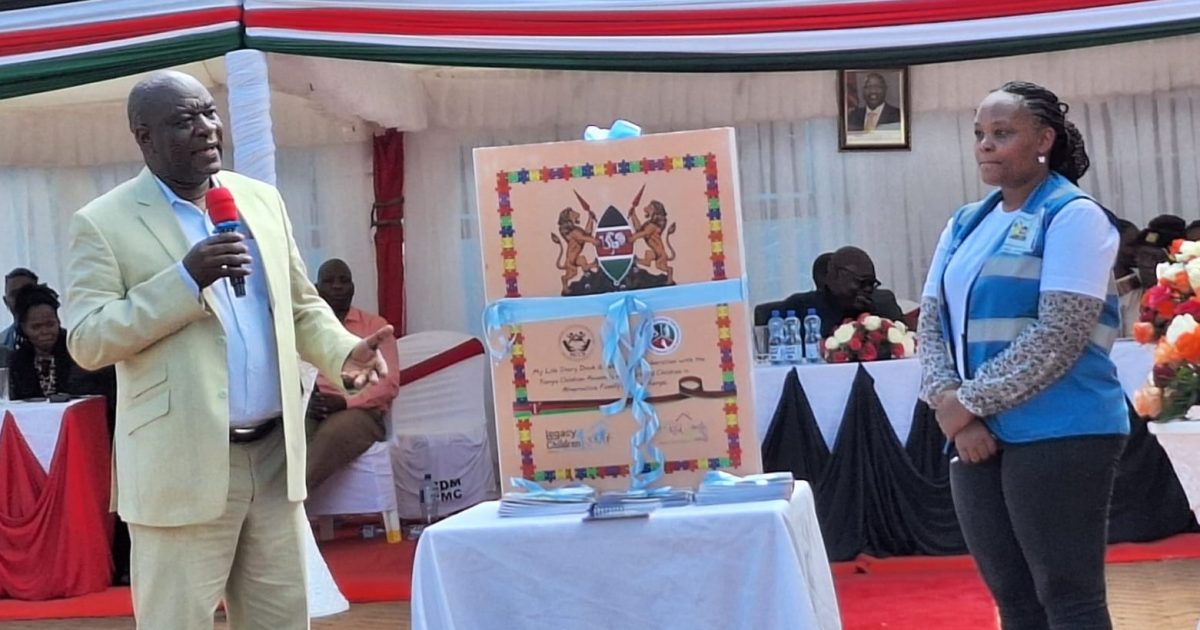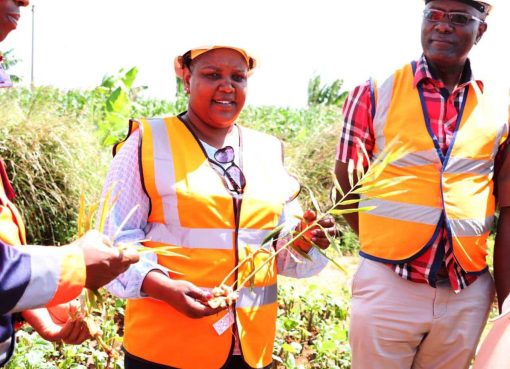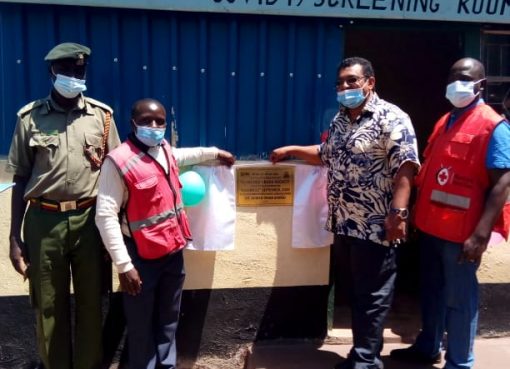The government is committed to ensuring all children currently placed in charitable institutional care are transited to a system where they could grow sustainably within a family and community setting.
Social Protection and Senior Citizen Affairs Principal Secretary Joseph Motari has observed that the government is currently implementing national care reforms which would see all children held in charitable institutions placed under a family and community set up by 2032.
In his speech read by Secretary Directorate of Children Services Shem Nyakutu during celebrations to mark foster care week in Murang’a, Motari said the care reforms would ensure children get the required social benefits and privileges by being brought in a family and community setting.
“The National Care Reform for Children is a key step in fulfilling Kenya’s international commitments, including the UN Convention on the Rights of the Child and the African Charter on the Rights and Welfare of Children,” stated the PS.
“By shifting towards family-based care, we place the child’s best interests at the forefront,” he added.
Motari revealed that since the government started implementing care reforms in 2022, more than 1,600 foster parents have been registered and are currently caring for 862 children.
“We are committed to enhancing the welfare of children by transitioning to a system where every child can grow safely within a family and community setting,” he noted.
The State Department for Social Protection PS Motari said together with other partners, Kenya has developed a range of family-based options such as kinship care, Kafala, foster care, guardianship, and adoption.
“These efforts aim to ensure that all children in need of care and protection are placed within a loving family and environment,” he added.
Motari noted that there is a shortage of families willing to foster children with disabilities and special needs and to that end, the Ministry is intensifying efforts on sensitization and training to reduce stigma around fostering such children.
“We are accelerating efforts in awareness, recruitment and assessment to make foster care more accessible and efficient; this calls for intensified training on foster care,” he remarked.
Nyatuku, on his part, discouraged informal adoption practices, urging parents to follow the government’s official guidelines for fostering children.
Head of Alternative Family Care at the Directorate of Children Services Lloyd Isadia noted that most people who were fostering children have not registered with the government.
He emphasized that registration helps the government keep accurate records of children in foster families and follow up on their social welfare.
“Sensitization programmes have encouraged more parents to take in children temporarily before they are connected with their families. However, a number of them have yet to register with the government and we are calling on them to do so,” he added.
Country Representative of UNICEF Kenya Catherine Kimotho lauded the government’s efforts in ensuring rights and privileges of children are taken care of.
Ms. Kimotho said the country was among the first countries in Africa to implement care reforms that would ensure children are not brought up in charitable homes.
“UNICEF will continue to support the government’s commitment in implementing the national care reforms. Successful implementation of the reforms will help to have all children have a family basis in their growth,” she said.
The National Foster Care Week celebrations saw hundreds of foster families gather at the Catholic Diocese of Murang’a grounds underscoring the efforts the government has put in place to family-based child care.
By Bernard Munyao and Anjaliwa Francis





